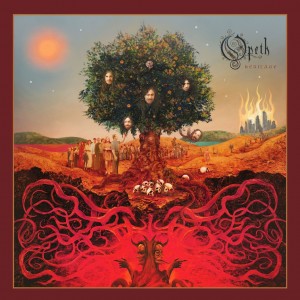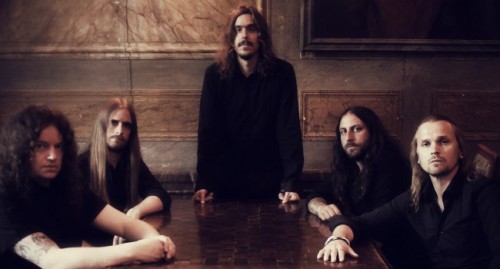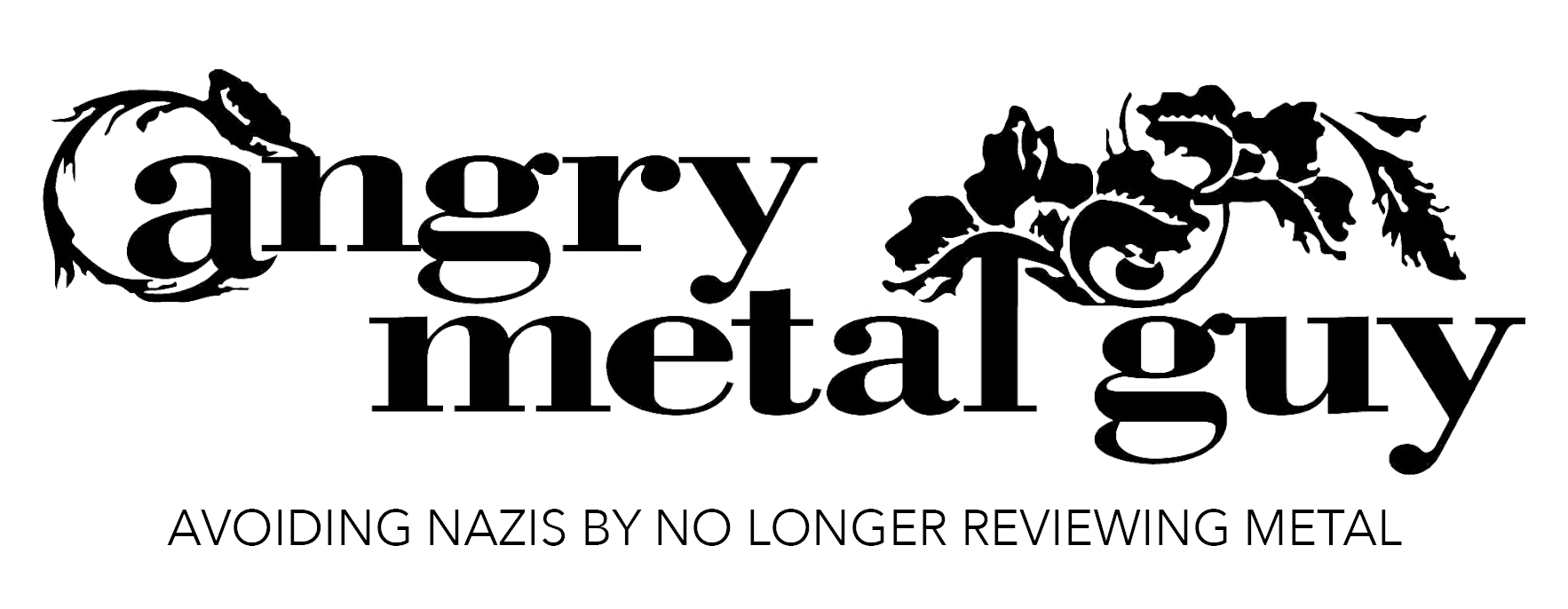Opeth // Heritage
Rating: 2.0/5.0 — A genuine disappointment.
Label: Roadrunner
Websites: opeth.com | myspace.com/opeth | facebook.com/opeth
Release Dates: US: 09.20.2011 | EU: 21.09.2011
Disclaimer: Knowing how to review this record has been very difficult for me because I’m a big fan of the band and I have no desire to try make my opinion seem bigger than the band’s work. I understand my subjective position as a reviewer very well. But this record suffers from pretty major issues that it make it very difficult for me to enjoy and that show off the weakness of the band in its current incarnation. I am aware that there will be a good amount of whining and gnashing of teeth over this review, and you’re welcome to it. Just remember that I 1) am not invested in Opeth playing death metal; 2) like plenty of bands that have changed their sounds; and 3) enjoy progressive and abstract music of all stripes very much.
 It’s hard to believe that we’re actually looking at Opeth’s 10th full length studio record now in 2011. It’s amazing how the little progressive death metal band that could is a global powerhouse of extreme and progressive music that is signed to one of the biggest labels in the metal world. Heritage was billed as a bit of a ‘look backwards,’ in a sense, with main man Åkerfeldt saying that he thought extreme metal was boring and that he has thought that for a while and so this was going to be something else. As a long time fan (who has regularly been called a fanboy), I think it’s obvious to me that Opeth was outgrowing their roots. While I think that Ghost Reveries is a genius album, Watershed was definitely not. It felt uninspired and rushed. So the big question for me coming into all of this was: would having more time and freedom make Heritage feel fresh? Would it be a record that would change Opeth for good, and also for the better?
It’s hard to believe that we’re actually looking at Opeth’s 10th full length studio record now in 2011. It’s amazing how the little progressive death metal band that could is a global powerhouse of extreme and progressive music that is signed to one of the biggest labels in the metal world. Heritage was billed as a bit of a ‘look backwards,’ in a sense, with main man Åkerfeldt saying that he thought extreme metal was boring and that he has thought that for a while and so this was going to be something else. As a long time fan (who has regularly been called a fanboy), I think it’s obvious to me that Opeth was outgrowing their roots. While I think that Ghost Reveries is a genius album, Watershed was definitely not. It felt uninspired and rushed. So the big question for me coming into all of this was: would having more time and freedom make Heritage feel fresh? Would it be a record that would change Opeth for good, and also for the better?
Heritage is very much as Åkerfeldt said in a recent interview, it is a progressive rock album that sounds very much like its biggest influence actually is mainly Opeth. Over time, Åkerfeldt has crafted a sound that is unique to the band and that has moved them into the limelight. There is a cadence and melodic structure to Opeth riffs that just feels very Opeth. The linear fashion of writing songs is also something that, nowadays is commonplace, but that has long been associated with Mikael’s writing style. Songs that are often more like movements than traditionally structured tracks works well in death metal, which is so heavily riff-based. This made for epic soundscapes that were at once exciting and interesting, but also had the ability to be fragile and beautiful. It was a sound that worked for the band and launched them into the stratosphere popularitywise.
But while Heritage retains Opeth’s voice (metaphysically and physically, of course), it does not retain its genius and I think this has to do with the fact that the songwriting on Heritage feels almost lazy, but certainly underdeveloped. A better way to say this might be that Heritage is full of great riffs and ideas, but not many very good songs. Instead, the listener is left feeling like the writing process was just to take a bunch of ideas and to hamfistedly shove them into these somewhat linear songs, often times with little regard as to key, time signature or context and feel. While this could seem “progressive,” for me it doesn’t feel so progressive as disjointed. A case in point is the single “The Devil’s Orchard” where, instead of writing a transition on guitar, keyboards are used to transfer out of a very cool verse/chorus iteration in a pretty jarring, unrelated fashion before trying to segue back to the main “chorus” theme at the end randomly.
 This kind of patchwork writing with bad or jarring transitions is basically the mark of Heritage. The same thing happens in “I Feel the Dark,” “Nepenthe,” “Famine,” and “The Lines in My Hand.” It even happens in my favorite songs on the record, which would definitely be “Slither” and “Folklore.” The only tracks that don’t suffer from this are “Heritage,” which is a piano track and the outro “Marrow of the Earth” which features Wishbone Ash or Iron Maiden-style guitar harmonies, which is similar to “Ending Credits” from Damnation or “Epilogue” from My Arms, Your Hearse.
This kind of patchwork writing with bad or jarring transitions is basically the mark of Heritage. The same thing happens in “I Feel the Dark,” “Nepenthe,” “Famine,” and “The Lines in My Hand.” It even happens in my favorite songs on the record, which would definitely be “Slither” and “Folklore.” The only tracks that don’t suffer from this are “Heritage,” which is a piano track and the outro “Marrow of the Earth” which features Wishbone Ash or Iron Maiden-style guitar harmonies, which is similar to “Ending Credits” from Damnation or “Epilogue” from My Arms, Your Hearse.
In spite of all of this, there are some really great moments in these songs, too. I love the first 2 minutes and 50 seconds of “Slither,” and it’s very cool riff and “Beneath the Mire” kind of drive, before it devolves into a non-related acoustic guitar part that wasn’t developed. “Famine” works with its very Jethro Tull feel, before devolving into a jam at the end that I’m not a huge fan of. ” Without the first 2 minutes of “Häxprocess” the song would have been genius, but it just sort of meanders in and then despite that the rest is really good, it feels a bit dead on arrival. “Folklore” is probably the most consistent track on the album, in my opinion, and it’s got a great Kebnekajse or Jan Johansson kind of feel to it that really hits the spot. And the band itself is playing as well or better than it ever has. Martin Axenrot is finally achieving Lopez-style jazz feel, while Mendez performs excellently on the bass. Fredrik has a number of great solos and, of course, Per’s keyboard work is the glue that holds the record together.
But beyond the obvious talent of the band, what do they leave the listener with? The record has grown on me to a certain extent since I first got it. There is arguably a “unifying feel” of the album, even if the writing is disparate and disjointed. But the whole is, unfortunately, not greater than its parts. Instead, I’d say there’s about 40 minutes of pretty good to excellent music, but a lot of bad transitions and only a couple great songs. This leaves me, frankly, aghast, as the fantastic transitions and compositions are the thing that really elevated Opeth to the level of great in my mind. If you think about the transition in “A Fair Judgement” at about 4:15 in the track or the transfer from “Pull me down again…” into the new part at 4:01 in “The Drapery Falls”. How about the end of “When”? And I could increase this list 10-fold.
So to say that Heritage is a disappointing record is almost an understatement. While I found some of things really growing on me since I started listening to it, which places it above Watershed in the pantheon, it is not a record that I think really belongs in the same breath as the band’s earlier stuff, or in the same breath as bands like Camel, Rush, Yes, King Crimson or Jethro Tull. Whether it is that the keyboards transitioning unlinked ideas has become a crutch, or that the tendency of death metal riffs to be based around an open E hid a lack of sophistication in Åkerfeldt’s writing style, Heritage exposes these problems in a way that even Watershed didn’t. And that leaves this Angry Opeth Fanboy feeling very disappointed.

















